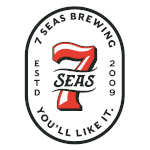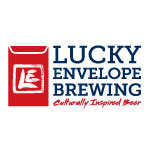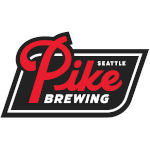Last week in Washington, DC, key members of the House Small Brewers’ Caucus issued a letter urging the Department of Justice to comprehensively review the merger of the global beer industry’s two largest players: Anheuser-Busch InBev (ABI) and SABMiller. See the complete letter below. Like many people in the beer industry, lawmakers have concerns about the merger’s potentially damaging effects on small and independent brewers.
As has been widely reported, the two global beer companies are pursuing a merger agreement creating an entity that controls over half of global beer profits. The merger of AB-InBev (ABI) and SABMiller would be the largest global acquisition by a beer manufacturer to date, and one of the largest acquisitions of a consumer goods company ever.
Not sure what this means? Read this post to understand the basics of what this merger is all about.
The House Small Brewers Caucus’ primary concern is ABI’s increased leverage on all aspects of the U.S. beer industry, particularly distribution. If the merger proceeds, the combined new company would represent 58 percent of global beer profits.
The deal would make ABI the major supplier to independent distributors. If ABI were to pressure independent distributors to abandon the distribution of non-ABI brands—including a significant number of craft brands—those brewers will have only one viable distribution option in those markets, further limiting many U.S. markets that are currently only served by two major beer distributors.
This may not seem like a big deal here in the Pacific Northwest, where craft beer has already established itself in the beer market and consumer demand for good beer drives the supply chain, but in other places around the U.S. craft beer is still emerging and this kind of “top down” pressure could be devastating.
Small brewers also fear that the ABI acquisition of SABMiller would affect the pricing and availability of supplies needed to make their product, such as hops and barley.
“Small brewers, including Oregon’s 200-plus breweries, don’t simply provide beer; they provide consumers across the country greater variety and consumer choices against a market dominated by big beer companies like Miller or Busch,” said Representative Peter DeFazio (D. OR) in the letter issued last week. “The proposed merger between ABI and SABMiller will impact that consumer choice and steamroll small brewers in the process, affecting supply, pricing, and manufacturing. I urge the Department of Justice to carefully review this proposed merger and fully evaluate the potentially disastrous effects of the partnerships of these two beer behemoths.”
Representative Erik Paulsen (R-MN) added, “Craft brewing is a growing industry that is creating tens of thousands of jobs in communities across Minnesota and the rest of the country. The proposed merger should be fully reviewed to ensure that an unfair advantage cannot be leveraged over our nation’s small brewers. If craft brewers are disadvantaged, it’s ultimately the consumer that will suffer from higher prices and less choice.”
“Pennsylvania was the birthplace of American beer,” said Representative Mike Kelly (R. PA). “More than two centuries later, the small craft brewing industry has witnessed a renaissance in the Commonwealth. From the North Country Brewing Company to the Reclamation Brewing Company in my hometown of Butler, these small businesses employ thousands of Pennsylvania workers and produce great food and beverages, while generating millions in revenue for the state. To ensure that the American beer market remains competitive and the craft beer industry continues to flourish, it is important to ensure that all brewers—big and small—have the same access to commodities so that all Pennsylvanians continue to benefit.”
Craft brewing represents more than 11 percent of the American beer market and directly supports 115,000 jobs across the country. With a total economic impact estimated at $55.7 billion, craft brewers hold a significant position in our nation’s beer industry.
Is your representative a member of the House Small Brewer’s Caucus? Find out here.
The House Small Brewer’s Caucus, founded in 2007 by Representative DeFazio, is a bipartisan group of 200 members from 43 states.
Here is the letter issued by the House Small Brewer’s Caucus, addressed to the Department of Justice:
The Honorable William Baer
Assistant Attorney General, Antitrust Division
U.S. Department of Justice
950 Pennsylvania Avenue, NW
Washington, D.C. 20530-0001Dear Mr. Baer:
As members of the House Small Brewers Caucus – a bipartisan group dedicated to issues affecting America’s small brewers – we write to urge the Department of Justice to undertake a comprehensive review of the global merger of Anheuser-Busch InBev (ABI) and SABMiller, the two largest beer manufacturers in the world, as well as any related divestiture of SABMiller’s ownership interest in the MillerCoors joint venture.
Along with a number of constituents, consumer advocates, craft breweries, independent beer distributors (wholesalers), retailers and industry groups, we are concerned about ABI’s increased leverage on all aspects of the United States beer industry. This deal is the largest global acquisition to date in the beer industry, and one of the largest acquisitions of a consumer goods company ever. As such, we believe that it is appropriate for the Department’s review to be even more comprehensive than its review of ABI’s acquisition of Grupo Modelo in 2012 and 2013.
If ABI’s acquisition of SABMiller proceeds, the combined new company would represent 58 percent of global beer profits, casting a long shadow in the U.S. marketplace where ABI, already the largest brewer, would increase its dominance.
ABI is currently the primary brewer for the largest network of U.S. multi-brand independent beer distributors and has unique access to larger retail accounts and other advantages stemming from the scope and scale of its operations. While brewers are generally required by state law to utilize licensed beer distributors to store and deliver their products to retailers, ABI also exercises vertical control through ownership of multi-brand beer distributors in some states. The distributors owned by ABI also sell beer brands that directly compete with ABI. In fact, recent takeovers make ABI one of the fastest growing beer distributors in the United States, having acquired 12 independent distributors in nine states since 2012.
ABI’s effective control as the major supplier to independent distributors, combined with its direct ownership of distributors and recent acquisitions of craft brewers, allows for greater opportunity to suppress the sale of the various brands of other brewers. Should ABI acquire additional independent distributorships in targeted markets or place further pressure on independent distributors to abandon the distribution of non-ABI brands, including a significant number of craft brands, those brewers will have only one viable distribution option in those markets. This is an outcome that will further limit access to many U.S. markets that are currently only served by two major beer distributors. As such, the Department must prevent negative effects of the proposed transaction on America’s craft brewers and consumers, who may be left with fewer choices and experience higher prices.
Small brewers also are concerned that the ABI acquisition of SABMiller creates the potential to constrain access to commodities that brewers rely on to make their products. These materials include hops, barley, cans, and bottles. The proposed acquisition would lead to a uniquely powerful global player in these markets with the capability of subtly affecting prices and supplies of essential commodities for other brewers. In the end, price increases and supply disruptions could have an adverse effect on both competition and beer consumers.
Craft beer is an American success story, representing over 11 percent of the American beer market and growing at double digit rates each year as consumers savor variety. This consumer demand has fueled a record number of craft breweries – about 4,000 – creating 115,000 jobs across all 50 states and a total economic impact estimated at $55.7 billion. These American businesses have been able to start, grow and reach new markets through an independent and competitive distribution system. The prospective enhanced dominance of the global market by ABI should not increase its ability to control the pathway to an effective distribution system, nor should it suppress the growth of American craft beer.
The House Small Brewers Caucus is greatly interested in the effects of the ABI acquisition on our constituents – craft brewers, beer distributors and consumers. We ask that you undertake a thorough review of this transaction and seek appropriate remedial steps to preserve competition and protect consumers.
Sincerely,

































